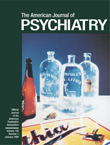As psychiatrists and other physicians move in this era of managed care from direct service to supervision of less trained professionals, it is useful to have monographs to which to refer such workers. This book is not written for professionals with a biomedical background. It is written at an elemental level, which makes it useful for substance abuse counselors or others without a biomedical background. It might also be useful as a college undergraduate or even a high school course textbook. It should be helpful to the general public. The book covers more than the pharmacology of abuse and dependence by providing a good introduction to psychopharmacotherapy for those who work primarily in the abuse field and others.
The book is recommended for those with minimal biological training as a highly readable introduction to how and where the brain processes chemicals of use and abuse. The authors assume that the reader has no knowledge of neuroanatomy but some knowledge of chemistry. Their explanation of the neuroanatomy of drug action is clear. There is some unevenness of treatment of various topics, however. For example, the chapter on marijuana is longer than either the chapter on the opioids or the chapter on cocaine. The chapter on marijuana is excellent reading, and the latter classes of drugs would have benefited from the same depth of discussion. More information would be useful on the treatment of cocaine abuse and more on opioid addiction treatment, notably the results and problems involved with methadone and other substitutive agent therapies. Nicotine abuse is barely mentioned, nor is barbiturate abuse. There is no discussion of psychotomimetics.
The chapter on antipsychotic medication is excellent, but the chapter on antidepressants could be more comprehensive. For example, there is no discussion of the use of the various anticonvulsants as mood stabilizers. I found two errors: on page 128, the authors state that the maximum daily dose of diazepam for the treatment of anxiety is 300 mg. That is way too high. On page 134, psychotic depression is defined in table 11.1 as a combination of schizophrenia and depression. This, of course, more accurately defines schizoaffective disorder. Psychotic depression is depression accompanied by psychotic features such as delusions.
Withal, this is a good, readable elementary introduction to the pharmacology of use, abuse, and dependence. It is recommended for the audiences previously listed.

